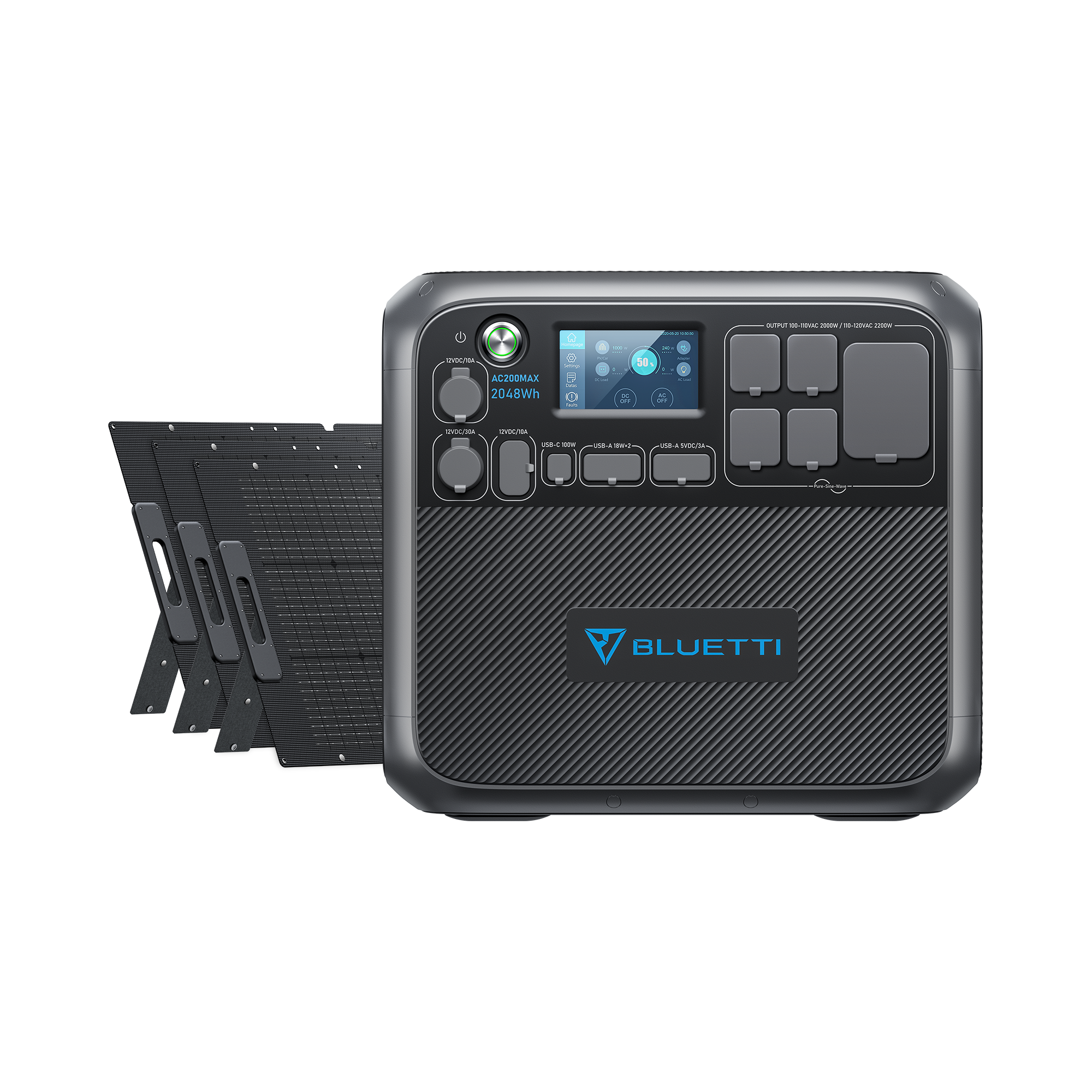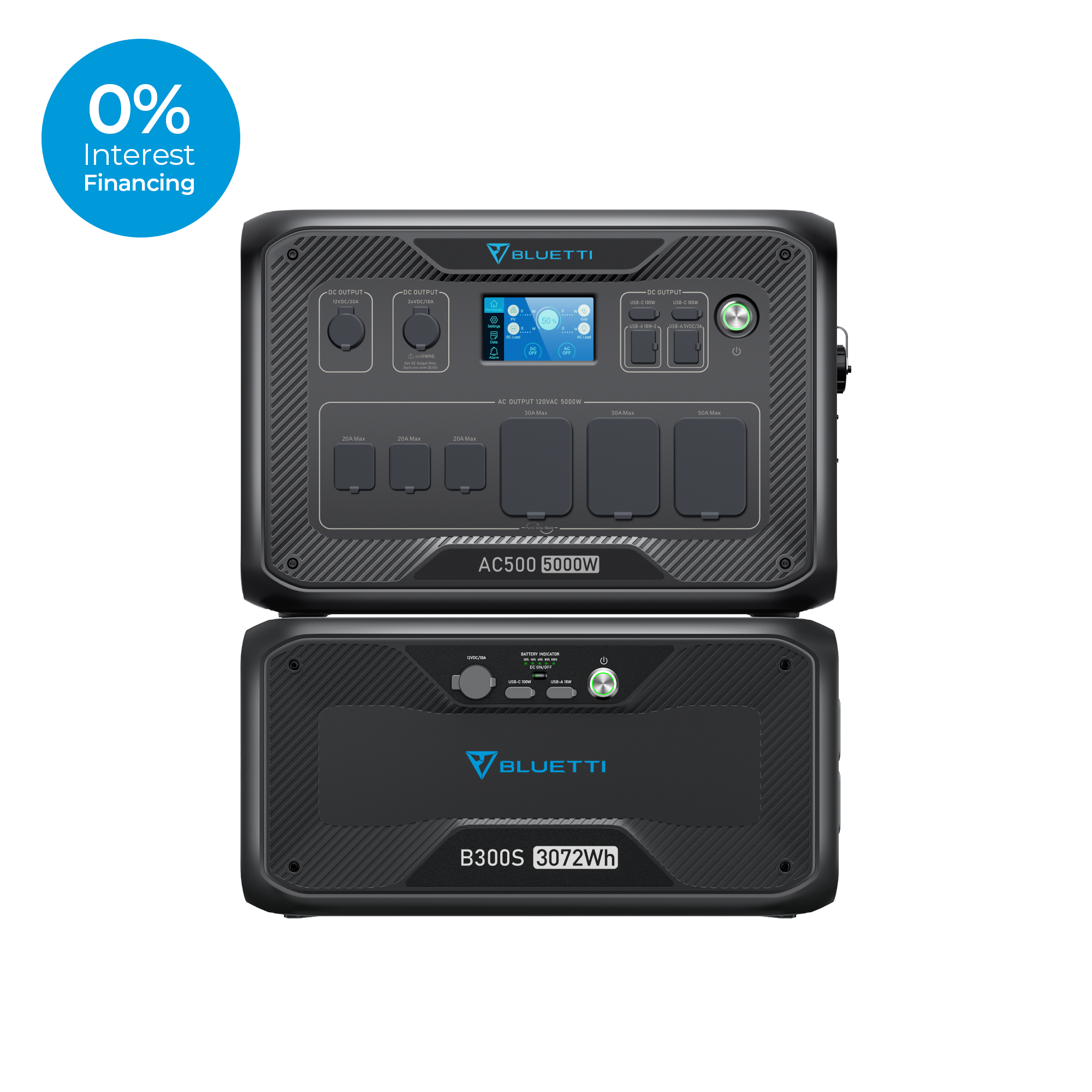The use of renewable and clean energy has been on the rise for decades. With the federal and state governments providing tax credits and rebates for installing solar systems, more and more homeowners are turning to solar battery backup systems. But can they run without solar panels? Let’s find out.
How Does A Home Battery Backup Work?
A battery backup is similar to any device’s battery: it has to have charge to operate. Without it, it is a useless gadget. Most modern battery backup systems allow you to recharge them using different methods, the most common being solar. Other methods include using AC outlets, lead acid batteries, and conventional generators.
Most residential laws encourage homeowners to install battery backup systems since they are eco-friendly and quiet during operation. Moreover, they do not require specialized installation. You don’t need to build a shelter to house them.
So, how do they work? The giant batteries store excess electricity when not in use: mostly during the day. This can be electricity produced by solar panels or electricity from the grid. Either way, the system will store energy for later use.
Their working principle is simple. First, the battery is charged through solar, AC, or even a car’s cigarette port. Most premium portable battery backup systems will charge from 0 to 100% within a few hours. They will then store the electricity for later use like at night.
The second principle is discharging. This happens when the battery is in use. For example, if power goes out, the battery backup system will switch on automatically. Discharging can also happen when you manually connect devices to the system.
The third principle is transition. Let’s say the power is restored. The battery backup system will automatically switch off. In fact, you won’t notice the transition. Modern units such as BLUETTI battery backup systems are designed to provide seamless transition so you won’t have any downtime.
Can A Battery Backup Work Without Solar Panels?
Yes, a battery backup system can work without solar panels. In fact, most homeowners with backup systems have not installed solar panels. Your system will store power from the grid for use during a power outage or when the demand is high.
For example, the BLUETTI EP900+B500 Home Battery Backup can work seamlessly without solar panels. This high-capacity battery backup system can be recharged using an AC outlet and other methods. Once charged, it provides ample electricity to run your entire house during a prolonged power outage.
As mentioned, these systems feature multiple charging methods so you don’t have to rely on solar panels only. And the best part is that they charge faster using the alternative methods.
What Are The Benefits of Using A Battery Backup Without Solar?
Here are the main benefits of using a standalone battery backup system.
Reduced Energy Costs
Electricity costs across the U.S. are increasing year by year, with the average rate being 23 cents per kilowatt-hour. However, some states charge higher than others. States like California and Massachusetts charge an upward of 28 cents per kilowatt-hour while Idaho charges 10.35 cents per kilowatt-hour.
As you can see, energy costs can add up quickly especially if you have a large home. To reduce your energy costs, you can install a battery backup system. You can use it when the rates are high and turn it off when they are lower. This way, you’ll reduce your electricity bills.
Backup Power
Battery backup systems provide a reliable source of electricity when there’s a power outage. They can disconnect from the grid during a blackout, providing backup power to your house. In addition, you can use the system during severe weather conditions.
Extreme weather increases susceptibility to power surges and spikes which can damage your appliances. To mitigate this, you can switch to the backup system until the condition weathers down.
Does A Standalone Battery Backup System Qualify For Solar Tax Credit?
Yes, you can qualify for federal and local tax credits if you purchase a standalone battery backup system. With a battery backup system, you can qualify for the 30% federal solar tax credit.
This reduces your federal income tax by 30% making the transition to green energy seamless and cheaper. For example, you can qualify for the solar tax credit if you purchase the BLUETTI EP800+B500 Home Battery Backup system.
Can You Use a Battery Backup System With Solar?
Yes, if your backup system supports connection to solar panels you can add them later. Most battery backup manufacturers also produce solar panels. As such, you should buy from the same brand. However, there are battery backup systems that are compatible with solar panels from other brands.
For example, some of BLUETTI battery backup systems are compatible with existing or new solar systems. Others come bundled with solar panels. If you’ll be using a portable backup system, you can then opt for portable solar panels like the BLUETTI PV420 Solar Panel. Such a setup is not only ideal for your home use but also outdoor activities such as camping and RVing.
Advantages of Using Battery Backup System With Solar Panels
Energy Independence
One of the main advantages of using solar panels with solar batteries is you enjoy energy independence. You don’t rely on the grid to charge your battery backup system. Whether there’s a power outage or not, you can always power your house.
Eco-friendliness
Using renewable and green energy does not emit greenhouse gasses. As you’d know, conversion of sunlight into electricity does not pollute the environment. Furthermore, using solar as your primary source of electricity reduces your reliance on fossil fuels.
You can use the excess electricity stored by the batteries during the night. This reduces the need to draw power from the grid, which is often powered by fossil fuels.
Reduced Transmission Losses
Using solar with a battery backup system reduces transmission losses significantly. Generally, electricity transmission happens over long distances, which leads to significant energy losses. With solar panels and a battery backup system, you draw electricity directly from your solar system, reducing transmission losses significantly. This makes energy consumption more efficient and eco-friendly.
Improved Solar Panels Lifespan
Another advantage of using solar batteries with panels is the bolstering of solar panels’ lifespan. While solar panels have a lifespan of 25 to 30 years, they degrade quickly due to the strain caused by continuous drawing of power by your devices. By installing a solar battery, you can reduce the strain and improve the lifespan of the solar panels.
Which Type of Battery Backup Can You Use At Home?
The following are the most popular types of battery backup.
UPS (Uninterrupted Power Supply)
It’s not uncommon for power to go out when you are in the middle of a task or watching your favorite program. Often, when there’s an unpredictable power outage, you tend to lose your unsaved data. And when you power your device on, it’s rare that you’ll start from where you are. Worst still, a power surge or spike can damage your device when power is restored.
A UPS battery backup mitigates the above scenario. UPS provides protection against power surges and ensures you can use your devices for a few minutes once the power goes out. While they are mostly used in commercial settings, there are smaller and cheaper options ideal for home use. If you want to protect a few devices only, you can opt for a UPS.
Solar Generators
Solar generators have become popular with most homeowners, thanks to their versatility, portability, and reliability. These large batteries provide power for hours with little to no noise. Their flexibility allows you to recharge them using different methods such as solar, AC, lead acid batteries, and others.
They have many benefits over conventional generators. They are silent and eco-friendly, meaning they do not produce greenhouse gasses, making them ideal for indoor application. Premium solar generators can charge and run large devices such as refrigerators, electric grills, and AC systems.
Whole-House Batteries
As the name suggests, they are intended to power the whole house. The best part is that they can run several large appliances with ease as they can handle high instantaneous power loads. They also have high capacity meaning they can run for hours on a single charge. Most whole-home batteries come with solar panels and often require professional installation.
Final Thoughts
So, can you run a battery backup without solar? Yes. Most battery backups come with alternative charging methods ranging from AC to using lead acid batteries. However, you can always install solar panels for improved energy independence.












































































